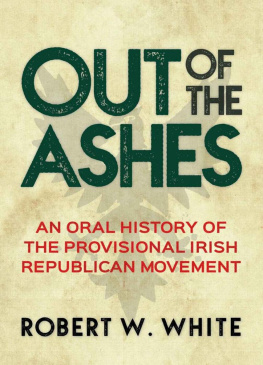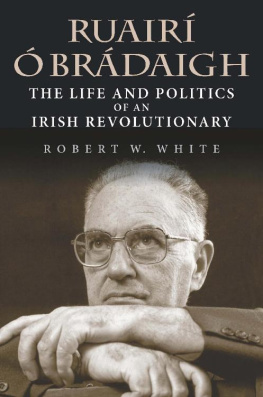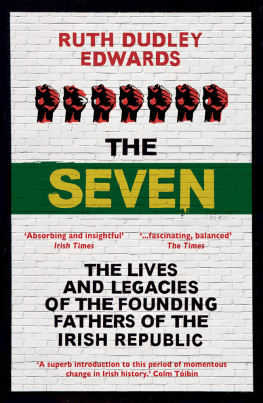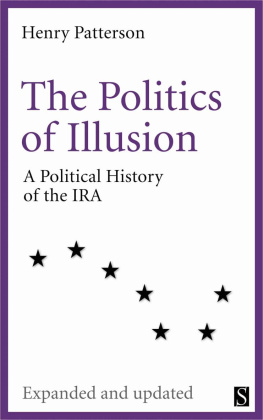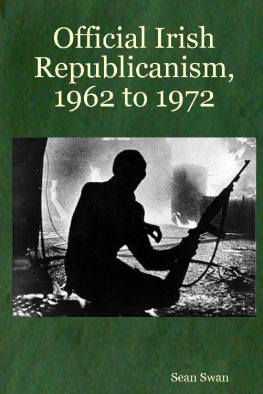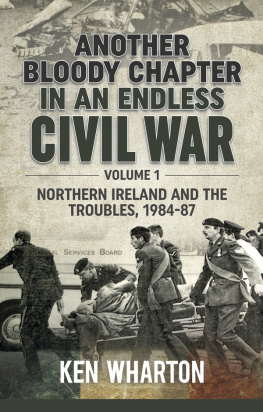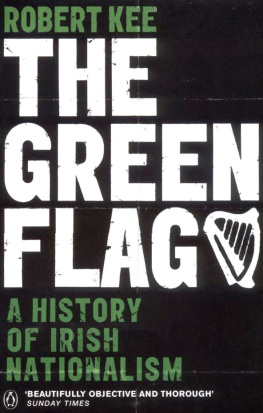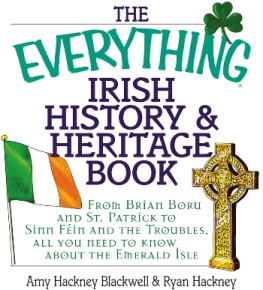
Robert W. White is Professor and Chair of the Department of Sociology at Indiana University-Purdue University Indianapolis (IUPUI). He is the author of Ruair Brdaigh, The Life and Politics of an Irish Revolutionary (2006), Provisional Irish Republicans: An Oral and Interpretive History (1993), and co-editor of Self, Identity, and Social Movements (2000). He also produced the online (open access) documentary, Unfinished Business: The Politics of Dissident Irish Republicans (2012):
http://www.ulib.iupui.edu/utility/video/unfinishedbusiness.html.

AN ORAL HISTORY OF THE PROVISIONAL
IRISH REPUBLICAN MOVEMENT
(SOCIAL MOVEMENTS VS TERRORISM)
ROBERT W. WHITE

First published in 2017 by
Merrion Press
10 Georges Street
Newbridge
Co. Kildare
Ireland
www.merrionpress.ie
Robert W. White, 2017
978-1-78537-093-9 (paper)
978-1-78537-095-3 (Kindle)
978-1-78537-115-8 (Epub)
978-1-78537-096-0 (PDF)
British Library Cataloguing in Publication Data
An entry can be found on request
Library of Congress Cataloging in Publication Data
An entry can be found on request
All rights reserved. Without limiting the rights under copyright reserved alone, no
part of this publication may be reproduced, stored in or introduced into a retrieval
system, or transmitted, in any form or by any means (electronic, mechanical,
photocopying, recording or otherwise) without the prior written permission of
both the copyright owner and the above publisher of this book.
Interior design by www.jminfotechindia.com
Typeset in Garamond 10.5/14
Cover design by Fiachra McCarthy
Printed by TJ International Ltd, Padstow, Cornwall.

C ONTENTS
Revolution Over the Life Course and
Life Over the Course of the Revolution
The War is Over:
The Irish Republican Movement Continues
(Activism since 2005)

A BBREVIATIONS
AIA Anglo-Irish Agreement
AICC Anglo-Irish Intergovernmental Conference
CIRA Continuity Irish Republican Army
CLMC Combined Loyalist Military Command
C/S Chief of Staff
32 CSM 32 County Sovereignty Movement
DAAD Direct Actions Against Drugs
DUP Democratic Unionist Party
EEC European Economic Community
EOKA Ethniki Organosis Kyprion Agoniston
FBI Federal Bureau of Investigation
GFA Good Friday Agreement
GHQ General Headquarters
GOC General Officer Commanding
GPO General Post Office
ICJP Irish Commission for Justice and Peace
IICD Independent International Commission on Decommissioning
INLA Irish National Liberation Army
IRA Irish Republican Army
IRB Irish Republican Brotherhood
IRSP Irish Republican Socialist Party
LVF Loyalist Volunteer Force
MLA Member of the Legislative Assembly
NIAS Northern Ireland Attitude Survey
NICRA Northern Ireland Civil Rights Association
NILP Northern Ireland Labour Party
NIO Northern Ireland Office
NORAID Irish Northern Aid Committee
ONH glaigh na hireann
PD Peoples Democracy
PIRA Provisional Irish Republican Army
PRO Public relations officer
PSNI Police Service of Northern Ireland
PTA Prevention of Terrorism Act
PUP Progressive Unionist Party
RAAD Republican Action Against Drugs
RIC Royal Irish Constabulary
RIR Royal Irish Regiment
RNU Republican Network for Unity
RSF Republican Sinn Fin
RT Radi Teilifs ireann
RUC Royal Ulster Constabulary
SDLP Social Democratic and Labour Party
SF Sinn Fin
SIS Secret Intelligence Service
SLR self-loading rifle
TD Teachta Dla
UDA Ulster Defence Association
UDP Ulster Democratic Party
UDR Ulster Defence Regiment
UFF Ulster Freedom Fighters
UKUP UK Unionist Party
USC Universal Social Charge
UUP Ulster Unionist Party
UUUC United Ulster Unionist Council
UVF Ulster Volunteer Force

P REFACE
T his oral history is the result of more than thirty years worth of interviews and conversations with activists in the Irish Republican Movement. On the surface it is an updated version of my Provisional Irish Republicans: An Oral and Interpretive History . However, other than some quotations from respondents, a few of the figures and following the same general timeline into the 1990s, this is a completely new book.
In the late 1970s and early 1980s, I developed a general interest in the causes and consequences of small group political violence. Then came the 1981 hunger strike. The official view was that the hunger strikers were criminals being used by mafia-like godfathers. From a distance, that seemed off the mark since the typical criminal does not fast to the death for political status. Curiosity led me to J. Bowyer Bells history, The Secret Army: The IRA . Bell had spoken with the Provisionals and offered a different and much more interesting story. In contrast to Bell, it seemed that there was an ever-increasing body of literature on terrorism that was written by academics who had never met a terrorist. Several of those scholars were associated with counter-terrorism institutes and think tanks.
The successful entr of Bell and others, the predominance of the English language and an interest in things Irish, led me to consider a case study of why people joined the Provisionals. With the support and encouragement of David Knoke, I entered the Irish field in January of 1984. The late J. Bowyer Bell, Edward Moxon-Browne, John McCarthy and Rob Robinson were also very kind and helpful in the early stages of this project.
It seems like Ive never left the field and there have been interesting interviews and adventures along the way. In speaking about what makes someone a good guerrilla, Sen Mac Stiofin commented, You wouldnt survive very long, would you? He was correct. In discussing enthusiastic new recruits, I asked Ruair Brdaigh if they made him nervous. He looked me in the eye and replied, Im suspicious of everyone. I had known him almost twenty years; I took it as good advice.
Not everything reduces to an entertaining quip, though, and while this has not been participant observation research, at times the observer has gotten closer to the field than intended. I was among the crowd in Belfast in August 1984 when a plastic bullet killed John Downes. In the early 1990s, a senior Sinn Finer suggested I get in touch with Denis Donaldson, then in New York, and gave him my contact information. I did not contact Donaldson but a Freedom of Information Act request would later reveal that US Customs investigated me. That might explain the wry smile on Donaldsons face when we did eventually meet, in Belfast. More recently, following an on the record interview with activists in a legal political organization, I was arrested by the Garda under Section 30 of the Offenses Against the State Act and accused of membership of an unlawful organization, namely glaigh na hireann. My time as a guest of the state only lasted a few hours, but it was an interesting experience that shed light on what others have experienced on a much more serious level. A couple of days later, while sitting in the Great Hall of the Northern Ireland Assembly watching Deputy First Minister Martin McGuinness have his photo taken with a group of students, it occurred to me that we now had something in common being arrested by the Garda. That evening, while debriefing with an old friend, I was reminded of the old rumour that I was some kind of CIA agent.
Next page
